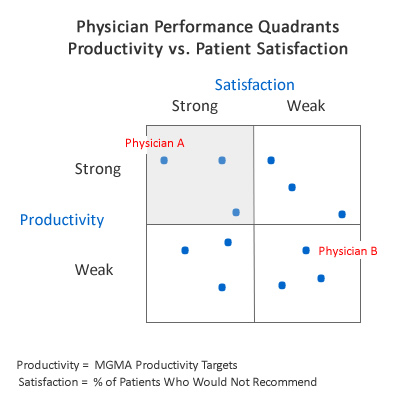
People are forever telling me that I am wasting my time talking to providers about the need to improve their patient communication skills. Naysayers typically cite one of the following reasons for why things will never change:

People are forever telling me that I am wasting my time talking to providers about the need to improve their patient communication skills. Naysayers typically cite one of the following reasons for why things will never change:
Reason 1 – Every physician thinks they already have good patient communication skills.
Reason 2 – Physicians don’t have time to talk to patients
Reason 3 – Physicians don’t get paid to talk to patients
Reason 1 is relatively easy to debunk. After all, if all physicians were really such good communicators:
- poor communications skills wouldn’t consistently top the list of patient complaints about physicians
- patient non-adherence wouldn’t be so high since physician and patients would always agree on what is wrong and what needs to be done
- patients would not be walking out of their doctor’s office not understanding what they were told
- patients would not experience so many communication-related medical errors
Reason 3 requires a little straightforward logic:
Since physicians are paid to diagnose and treat patients presenting problems…and the accuracy of their diagnosis and treatment depends upon their physicians’ ability to elicit and listen to the patient’s story…then indeed physicians are already being paid to talk to patients.
Reason 3 (physicians don’t have time) has always been hard to address. That is until now.
Most us tend to think about physician time on a zero sum basis. Take the office visit for example. Providers will argue that they either spend more time trying to be patient-centered (associated with great patient experiences) or they can use less time to diagnose and treat patients the way they have always done – but no way can they do both at the same time.
A recent published study conducted by HealthPartners in Minneapolis suggests that physician time is not a zero sum game – that providers can in fact be productive while at the same time creating a satisfying patient experience.
Individual productivity and patient experience scores were calculated and plotted for 22 HealthPartners physicians using a scatter diagram like that shown in Figure 1 (for demonstration purposes only). What the study found was that a relatively equal number of physicians fell into each of 4 quadrants – strong productivity/strong satisfaction, strong productivity/weak satisfaction, weak productivity/strong satisfaction and weak productivity/weak satisfaction.
The researchers then looked to explain the difference between physicians in each of the quadrants. They ended identifying a set of “behaviors and characteristics” to help explain why some physicians had strong productivity/strong satisfaction scores while others did not.
Physicians in the strong productivity/strong satisfaction quadrant exhibited the following behaviors and characteristic to observers:
- Focused on teaching and explanations
- Conveys warmth from the start
- Well-planned flow of visit with focus on patient’s agenda
- Controlled script with clear parts
- Extremely personable—connects with every patient
- Always looking for buy-in from the patient that s/he fully understands
- Recap the history: “I read your chart …”
- Confident but not arrogant
- Finishes dictation and coding each day
- Clinic staff enters orders and prepares after-visit summary
Physicians in the weak productivity/weak satisfaction quadrant exhibited the following behaviors and characteristic to observers
- Lack of “being there” emotionally
- Lack of smiling
- Abrupt actions
- Behavior changes when not interested in the “case”
- Patients kept waiting and wondering
- No handshake
- Sense of interrogating to get a diagnosis
- No attempt to match the patient’s energy
What struck me about these lists was that were dominated by the presence (strong productivity/strong satisfaction) or absence (weak productivity/weak satisfaction) of communication-related “behaviors and characteristics.”
Perhaps not so surprisingly, the behaviors and characteristics of physicians in the strong productivity/strong satisfaction are consistent with those traits commonly associated with a patient-centered style of communications. This evidence belies the conventional belief among physicians that they will be less productive (rather than more productive) by adopting a patient-centered style of communications with their patients.
Based upon the evidence, HealthPartners has since gone on to provide its physicians with useful guidelines for how to improve their productivity and patient experience scores.
Take Aways Physicians and practice managers need to seriously reexamine:
- their assumptions about the value of and barriers to improving their patient communication skills
- the evidence in support of the adoption patient-centered communications skills and styles
Physicians and managers should consider assessing the quality and effectiveness of their existing patient communication skills. The last time most physicians focused on their patient communication skills was back in medical school.
Implement interventions and guidelines designed to improve the patient-centered communication skills of physicians and their care teams.
That’s what I think…what’s your opinion?
Sources:
Boffeli, T., et al. Patient Experience and Physician Productivity: Debunking the Mythical Divide at HealthPartners Clinics. The Permanente Journal/ Fall 2012/ Volume 16 No. 4.
image: communication/shutterstock![]()







